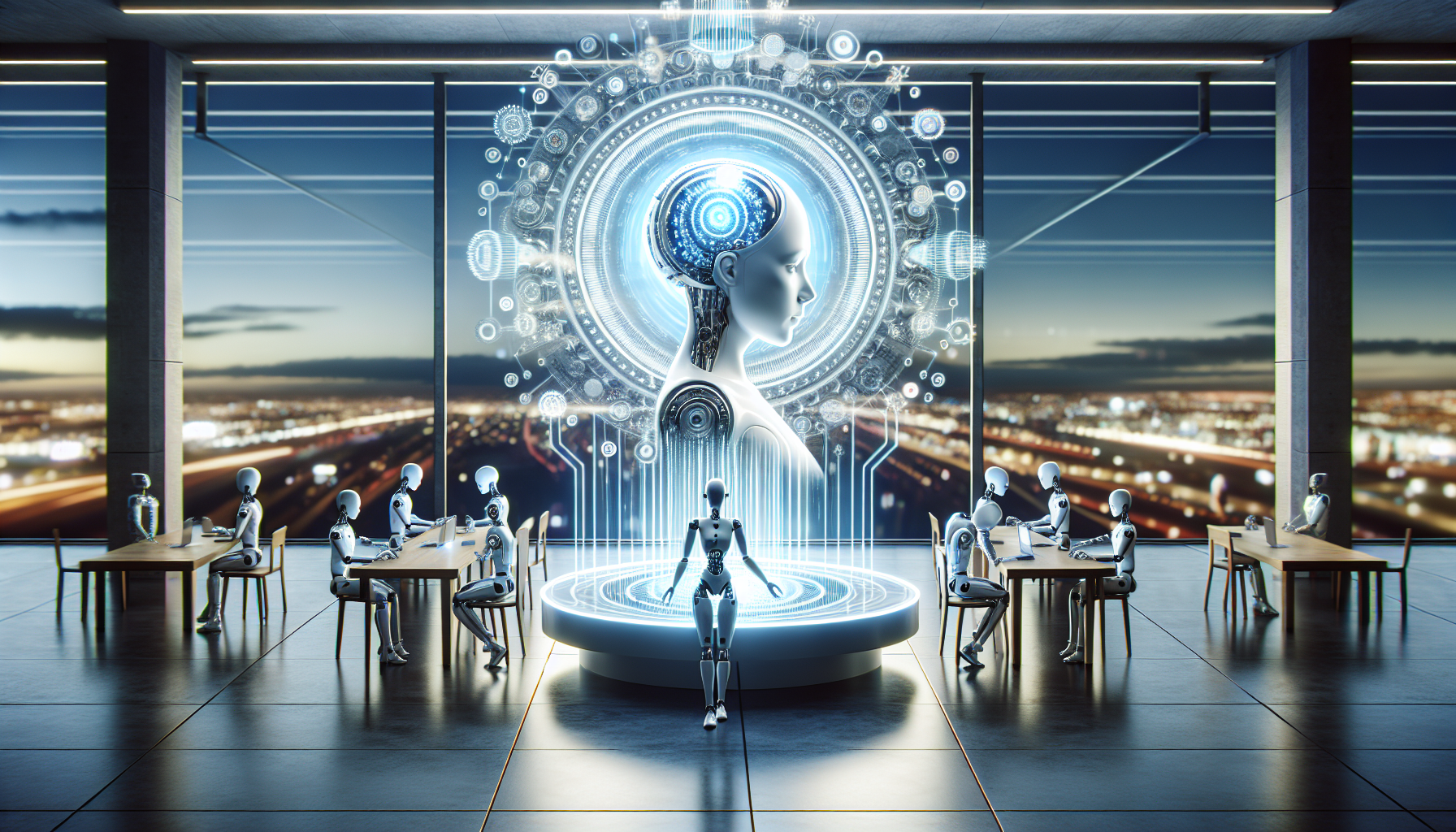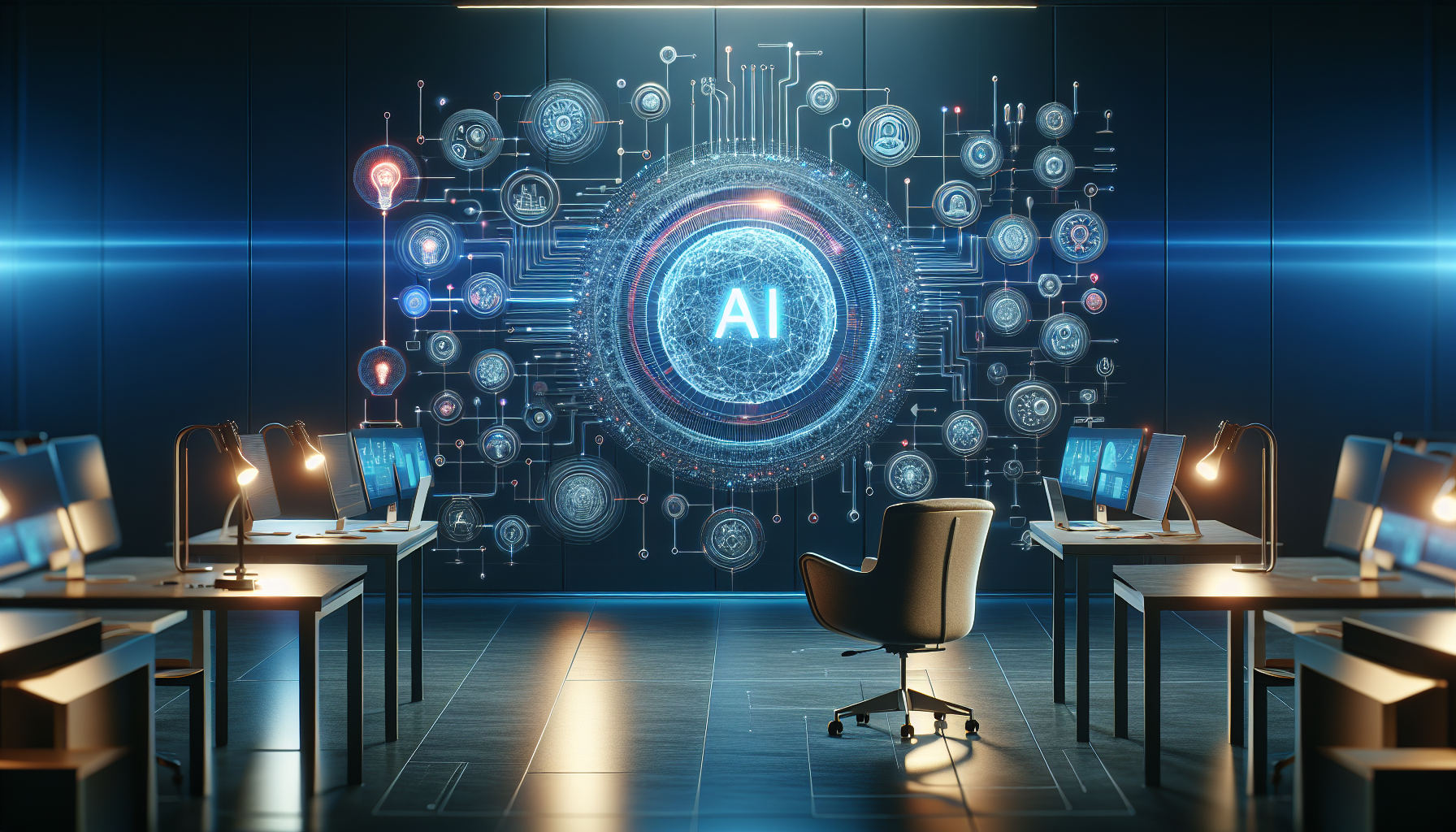
Quantum Computing and AI: A Historical Perspective on Their Synergistic Potential
May 10, 2025
Artificial Intelligence (AI) has been a pivotal force in transforming numerous industries, and its confluence with quantum computing marks a new epoch of technological evolution. The intersection of these two groundbreaking fields promises to redefine computational paradigms, offering unprecedented capabilities. A historical examination of quantum computing's development alongside AI unveils a narrative of synergistic potential that is both compelling and intricate.
The roots of quantum computing can be traced to the early conceptual explorations of quantum mechanics, where the peculiarities of superposition and entanglement laid the foundation for future computational applications. These quantum phenomena offer a departure from classical computing's binary limitations, proposing a computational model that leverages qubits instead of bits. Such a model enables the simultaneous processing of vast amounts of data, a feature that aligns naturally with the demands of AI algorithms, particularly those requiring massive parallelism.
AI's evolution, characterized by the development of neural networks, machine learning, and deep learning, has traditionally been constrained by classical hardware's computational limits. The exponential growth of data and the complexity of models have necessitated innovations in processing power and efficiency. Here, quantum computing's potential becomes apparent. By employing quantum algorithms, AI can transcend current computational barriers, facilitating faster data processing, optimized problem-solving, and enhanced predictive analytics.
Historically, the progression of quantum computing has been marked by incremental yet significant breakthroughs. Early quantum algorithms, such as Shor's algorithm for integer factorization and Grover's algorithm for database search, demonstrated the theoretical superiority of quantum computations over classical ones. These algorithms, while primarily theoretical, laid the groundwork for practical applications that could revolutionize AI.
In parallel, AI has matured from its nascent stages of rule-based systems to sophisticated machine learning models capable of self-improvement. The historical trajectory of AI reveals a pattern of iterative advancement, punctuated by periods of rapid innovation driven by improvements in computational power and algorithmic sophistication. The convergence of these historical paths suggests a future where quantum-enhanced AI systems could achieve levels of intelligence and autonomy currently beyond reach.
A crucial aspect of this synergy lies in the optimization of AI algorithms through quantum computing. Quantum machine learning (QML) is an emerging field that explores the application of quantum computing to enhance machine learning tasks. Techniques such as quantum support vector machines and quantum neural networks are in development, promising to accelerate learning processes and improve the accuracy of AI models.
Moreover, the historical development of quantum error correction and noise reduction techniques is critical for the practical implementation of quantum computing in AI. Overcoming decoherence and ensuring qubit fidelity are essential for maintaining the integrity of quantum computations, particularly in complex AI applications. The refinement of these techniques over time underscores the historical resilience and adaptability of the quantum computing field.
Despite the theoretical promise, the integration of quantum computing and AI is not without challenges. The historical landscape is replete with technical obstacles, such as the scalability of quantum systems and the development of efficient quantum algorithms. However, ongoing research and collaboration between physicists, computer scientists, and engineers continue to push the boundaries of what is possible, reflecting a persistent drive toward innovation.
As we consider the historical narrative of quantum computing and AI, a profound question emerges: how will this powerful combination shape the future of technology and society? The potential applications are vast, ranging from drug discovery and cryptography to climate modeling and beyond. The historical interplay of these technologies suggests a trajectory toward a future where quantum-enhanced AI could solve some of humanity's most complex problems, fundamentally altering our approach to computation and intelligence.
In pondering this question, one must consider not only the technical advancements but also the ethical and societal implications of such powerful technologies. The historical context provides a lens through which we can assess the potential impacts and guide the responsible development of quantum-enhanced AI systems. As we stand at the precipice of this technological revolution, the lessons of history remind us of the importance of foresight, collaboration, and stewardship in harnessing the full potential of quantum computing and AI.


